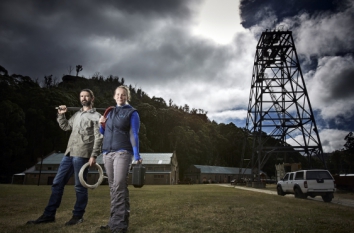Australian University Partners with ONGC on CBM
The University of New South Wales (UNSW) will try out in India a new method that promises to dramatically increase gas yields from coalbed methane (CBM) wells.
The UNSW team and India’s Energy and Resources Institute (TERI) will work together to develop the industrial application of the new research breakthrough in CBM wells operated by India’s state-owned ONGC. Australia India Strategic Research Fund (AISRF) has announced a new grant of A$1mn ($0.76mn) to support the project.
UNSW said that simply by adding a common synthetic dye, microbiologists at the university have demonstrated a tenfold increase in the volume of methane generated by microbes in coal beds. University’s researchers have already replicated the extraordinary gains in gas volumes outside the laboratory, in tests in coal beds west of Sydney.
However, Indian trials will enable a battery of industrial scale tests factoring in critical variables such as coal seam pressure and temperature, as well as enabling the development of new technologies to precisely introduce the dye. The breakthrough could extend the life of CBM wells.

Project leader UNSW associate professor Mike Manefield (left) with researcher Sabrina Beckmann (Credit: UNSW)
ONGC owns four idle CBM blocks in India and is looking to ramp up investment in them. Earlier this month, ONGC said it planned to invest $123mn in the Bokaro block in the eastern state of Jharkhand. The project envisages gas production of 4.068bn m³ in 20 years.
India’s CBM sector has been struggling because there is no clear policy framework. Recently, a parliamentary panel has said that India needed a new CBM exploration policy if it were to achieve its potential production volume. A Parliamentary Standing Committee on Petroleum and Natural Gas tabled a report in India’s lower house of the parliament on August 11.
“In view of the fact that newer techniques of assessment and exploration and drilling of CBM have significantly improved, the committee, therefore, feel that there is need to formulate a new comprehensive CBM policy consistent with developments in regulatory regimes and also taking into account the performance of the existing policy,” the report stated.
The current CBM policy was devised in 1997. Four rounds of CBM bidding have been undertaken in 2001, 2003, 2005 & 2008 resulting in award of 33 CBM blocks covering 16,613 km². Only two private sector companies, GEECL and Essar Oil, are commercially producing CBM in India. Reliance Industries is expected to commence production later this year.
Shardul Sharma


